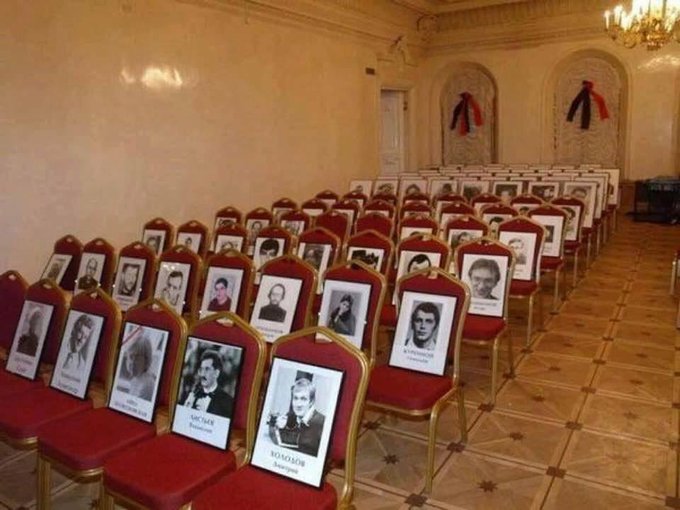As Harvard academics prove, the truth doesn’t matter when you are bashing Russia
Bryan MacDonald is an Irish journalist, who is based in Russia
Two Harvard University academics have seen dreadfully incorrect Russia-related tweets recently go viral. The fact neither has deleted their falsehoods sums up the low standards when it comes to the Western assessment of all things Russian.
In the information space, a lot of stuff goes out the window when it comes to Russia. Like ethics, decency, fairness, and facts. It’s hard to recall a single incidence of a journalist, official or academic losing a position for being hopelessly wrong about the country.
That’s why you end up with TV networks offering people who’ve never set foot in Moscow as “Russia experts,” magazines presenting opposition figures on two percent in the polls as serious contenders for the presidency and outlets alleging Vladimir Putin is dating Wendy Deng.
It also explains how pundits can claim Russia is about to collapse and then a few months later, insist the Kremlin is about to invade another country. And why analysts who set exact time frames for these incursions, and are proven wrong, fall upwards rather than downwards subsequently. Because anything goes when it comes to Russia and fueling the hysteria is more important than telling the truth.
That said, at least in the “respectable media” you might get the odd correction. Such as when The Washington Post was forced to backtrack on spurious reports Moscow had hacked Vermont’s electrical grid, or when the same paper was compelled to issue a correction after falsely accusing RT of using automated bots to circulate articles.
However, on social media, not only do “experts” not apologize, they rarely even delete their erroneous posts. Probably because of the huge exposure they can receive from the thousands of shares and retweets to be gained from crookedly smearing Russia. And to hell with the consequences of the animosity, enmity, and venom they generate.
Tribal Instinct
A classic case in point emerged this Thursday morning (Moscow Time) when a Harvard University professor named Laurence Tribe, tweeted the following: “DOJ (Department of Justice) is pursuing Dmitri Firtash, Russian mobster linked to . . wait for it: (former Trump campaign aide, Paul) Manafort. But T (Trump) named lawyer for Russian bank to head Crim(inal) Div(ision)!”
And at the time of writing, this brainfart had earned over 4,000 retweets, which have surely multiplied since.
But, you guessed it, the tweet is deceptive, deceitful and specious, whether by accident or design. Because the “Russian mobster” mentioned, Dmitry Firtash is actually a Ukrainian oligarch. A man who amassed much of his fortune during the Presidency of Viktor Yushchenko, the pro-Western leader installed after the 2004 “Orange Revolution.” In addition, Firtash served in a number of government positions during the administration, including as Chair of the National Tripartite Social and Economic Council.
Firtash was born in Ukraine and holds Ukrainian citizenship. And, while he may very well be a “mobster,” he’s not Russian. And, as the Western media never tires of emphasizing, Ukraine and Russia are not the same country and haven’t been joined since 1991.
Dozens of people have pointed out Tribe’s mistake. And the writer has surely noticed because he’s posted since, but this falsehood still sits on his page, proud as a peacock. All the while being shared all around the Twittersphere, as its author betrays no sense of remorse or embarrassment.
Nothing Is Real
Nevertheless, to be fair to Tribe, he’s only a baby faker compared to his Harvard colleague Yascha Mounk. A man who professes to “defend liberal democracy against the illiberal international.” And also makes up the odd bogus online statement about Russia.
A couple of weeks ago Mounk reported on Twitter: “Need a reminder of the human cost of dictatorship? All these are journalists who criticized Putin--and died under mysterious circumstances.” But the problem with his statement was quickly evident to anyone with a basic knowledge of Russia.
Because the image used to illustrate the tweet of 'journalists killed by Putin' was actually one of all Russian journalists killed, anywhere, since 1991. And, what's more, most of them passed away under the West-endorsed presidency of Boris Yeltsin. With many of those featured having been war correspondents, who sadly met their ends in conflict zones. Indeed, while journalism often remains perilous in today’s Russia, the fact is things were far more dangerous during the “liberal democratic” Yeltsin years. The pattern is being repeated right now in Ukraine, where violence against journalists has risen dramatically since the 2014 Maidan installed a US-backed regime.
Again, despite numerous folk informing Mounk of his tweet’s inaccuracy, he hasn’t deleted it. So, It continues to strut across Twitter, with 55,000 retweets and counting. Each one of them spreading the disinformation to a new audience.
Harvard University’s 2016-17 fees amount to “$43,280 for tuition and $63,025 for tuition, room, board, and fees combined,”according to its website. Now, for that kind of cash you'd expect teachers and researchers of the highest caliber, dedicated to rigorous fact-checking and earnestly devoted to accuracy.
But Mounk and Tribe, at least when it comes to Russia, don’t seem to care about such basic standards. Don't expect either to suffer sanction. Because, after all, anything goes these days once the subject matter is Russian.
The statements, views and opinions expressed in this column are solely those of the author and do not necessarily represent those of RT.


0 Comments:
Post a Comment
Subscribe to Post Comments [Atom]
<< Home